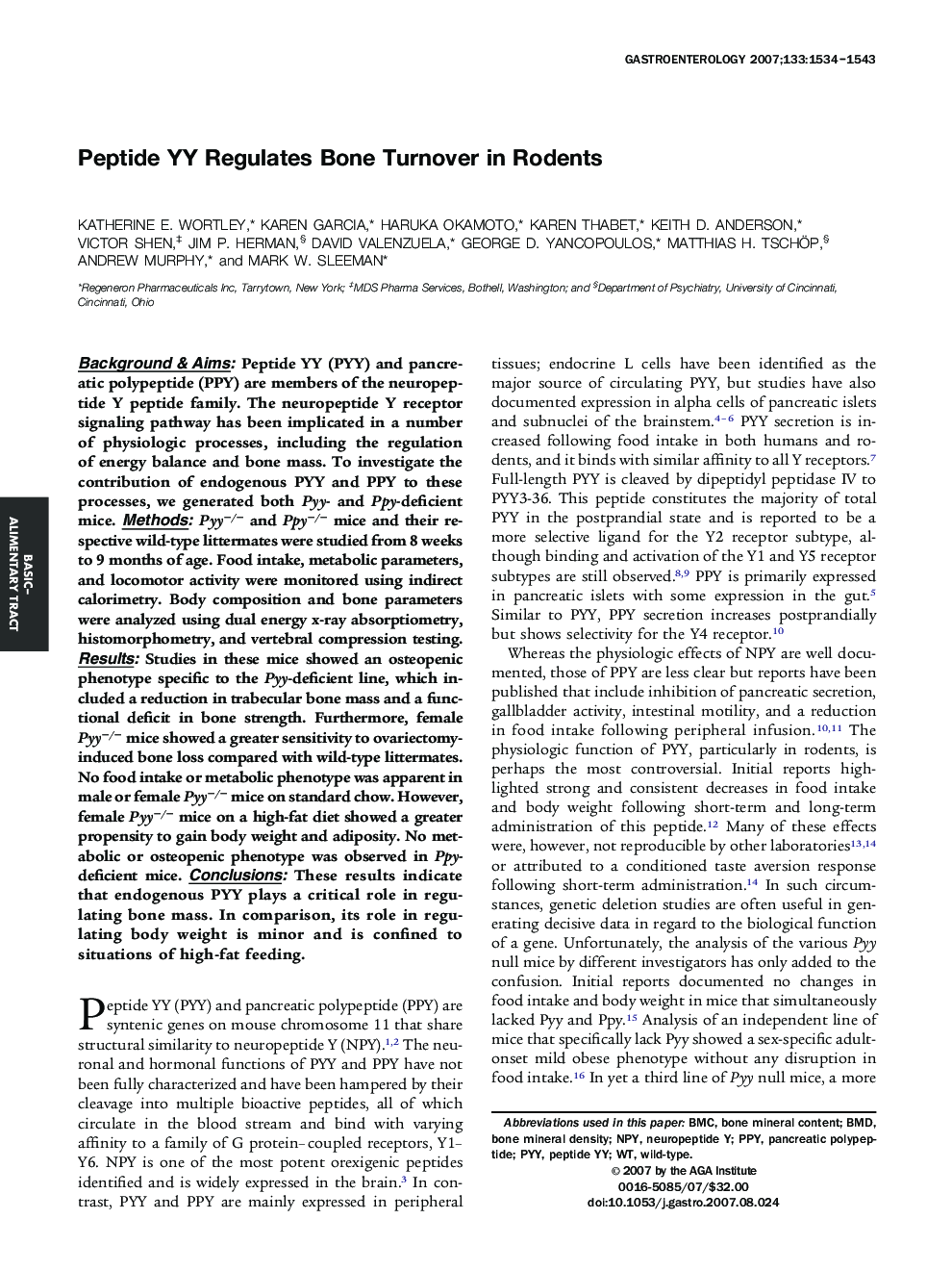| Article ID | Journal | Published Year | Pages | File Type |
|---|---|---|---|---|
| 3296004 | Gastroenterology | 2007 | 10 Pages |
Background & Aims: Peptide YY (PYY) and pancreatic polypeptide (PPY) are members of the neuropeptide Y peptide family. The neuropeptide Y receptor signaling pathway has been implicated in a number of physiologic processes, including the regulation of energy balance and bone mass. To investigate the contribution of endogenous PYY and PPY to these processes, we generated both Pyy- and Ppy-deficient mice. Methods: Pyy−/− and Ppy−/− mice and their respective wild-type littermates were studied from 8 weeks to 9 months of age. Food intake, metabolic parameters, and locomotor activity were monitored using indirect calorimetry. Body composition and bone parameters were analyzed using dual energy x-ray absorptiometry, histomorphometry, and vertebral compression testing. Results: Studies in these mice showed an osteopenic phenotype specific to the Pyy-deficient line, which included a reduction in trabecular bone mass and a functional deficit in bone strength. Furthermore, female Pyy−/− mice showed a greater sensitivity to ovariectomy-induced bone loss compared with wild-type littermates. No food intake or metabolic phenotype was apparent in male or female Pyy−/− mice on standard chow. However, female Pyy−/− mice on a high-fat diet showed a greater propensity to gain body weight and adiposity. No metabolic or osteopenic phenotype was observed in Ppy-deficient mice. Conclusions: These results indicate that endogenous PYY plays a critical role in regulating bone mass. In comparison, its role in regulating body weight is minor and is confined to situations of high-fat feeding.
